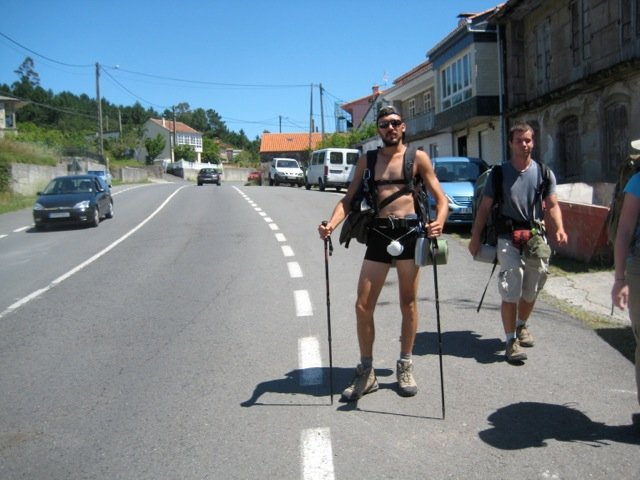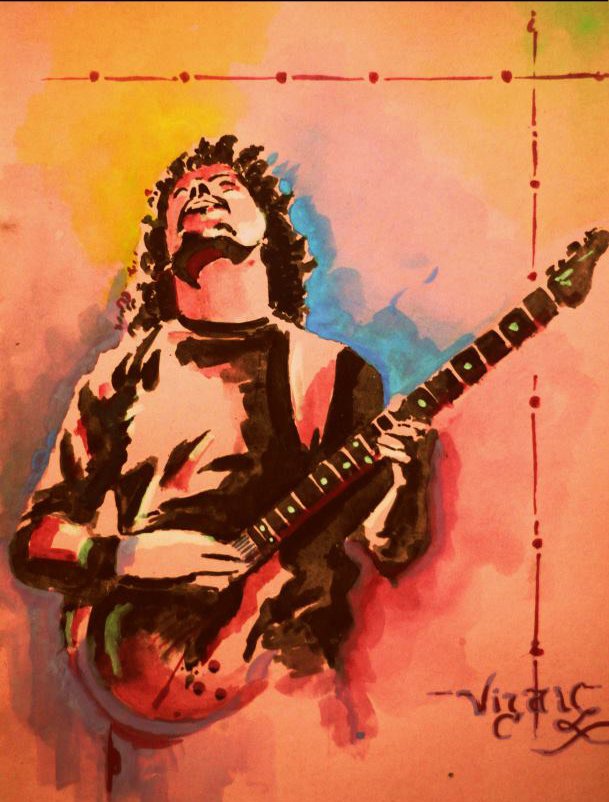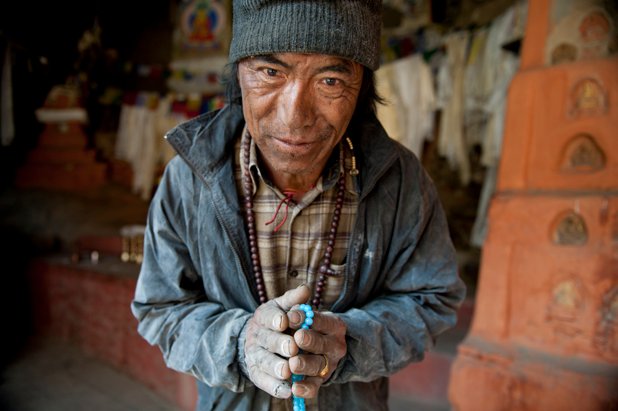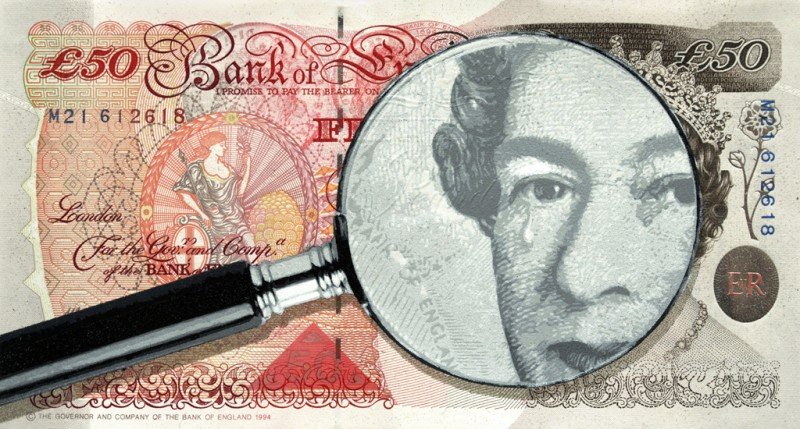U.S.A. –
When Gideon Lewis-Kraus set off for Berlin to relieve the sense of restlessness and discontent common in many a young soul, he was caught by the lack of fulfillment a life of “stifling freedom” brought. So, when a fellow writer reminded him of a vague promise to undertake the 500-mile Camino de Santiago pilgrimage in Spain years earlier he agreed. What started out as a trip to honour a commitment took on a life and energy of its own as Lewis-Kraus endured the throes of life and travel over 3 pilgrimages in Spain, Japan and the Ukraine. From loneliness and blisters to self-discovery and family revelations, Lewis-Kraus braves it all and relays it elegantly in his book. A Sense of Direction: Pilgrimage for the Restless and the Hopeful collaborates comic wit with melancholy resonance whilst still managing to answer a catalog of existential questions. EMAHO spoke to Gideon about the modern day pilgrimage, his book + the purpose of travel.
Emaho : Routine and structure are often critical to a contented life and one of the reasons you went on the Camino trail was to escape the “suffocating freedom” of Berlin. Can you discuss the costs of freedom in Berlin?
The costs and benefits of any given experience are always a matter of the moment of calculation. I’ve just been reading Caleb Crain’s extraordinary debut novel, Necessary Errors, which is about a group of expatriate friends having long beery conversations in post-revolutionary Prague. One of the things that characterizes the main character, Jacob, is that he has this sense that he might make those calculations in advance – that he might perceive, in some a priori way, what the ultimate reckoning will be. So if you’d asked me right when I was leaving Berlin – a city I tried to leave, with varying levels of success, many times – what the costs had been, I would’ve said that they were enormous: I’d felt as though I’d gotten very little writing done; I felt as though I’d not come into myself the way I’d hoped I might; I really made a romantic muddle of things. But, now that a few years have gone by, I’m in a position to appreciate what the value of those years was: I had endless amounts of time to devote to friends that were, and continue to be, very important to me; though I might not have done a lot of writing at the time, once I had better assimilated the experiences there I think I ended up doing a lot of writing about it; and I came to feel more comfortable in the wider world than I ever would have felt had I not spent so much time abroad. The character Jacob more or less becomes the person who, twenty years later, published a terrific novel about the experience.

© Gideon Lewis-Kraus
Emaho : You said of the Camino trail that whilst it was once a serious religious pilgrimage, it’s become strangely popular with a young, mostly secular crowd. Why do you think the pilgrimage has become so trendy?
Well, I suppose that’s what the whole chapter is about, the attempt to answer that question. I guess I’d say that it’s basically a very inexpensive and simple way to step away from your life for a month, tailored especially to people who would feel frivolous or self-indulgent if they spent that month on a beach. I know a month on a beach would drive me out of my mind, but a month of walking with strangers through the Spanish heat gave me, and a lot of people experiencing moments of crisis and transition, a sense of distance and equanimity. But I’m not sure the word ‘trendy’ is right, because the whole point is that it’s something very difficult that you have to commit to finishing, not something you can just pick up and put down when you’re bored. I mean, I suppose you could do that, and people do, but most of the people who start end up seeing the whole experience through.

© Gideon Lewis-Kraus
Emaho : An interesting theme that arises in your book is the distinction between a ‘reason’ and an ‘excuse’, and a quote of yours I particularly like is “we long to be relieved of the burden of choice by just being told what to do”. This distinction arises in both the context of your father and his life choices in regards to coming out and your own decisions to go on pilgrimages (particularly in Shikoku). How did your own experiences surrounding this dichotomy impact on how you viewed your father’s actions?
Well, one of the ways I saw the trajectory of the book is as a set of disintegrating distinctions. So, at the beginning of the book, I set up this distinction between pilgrims and tourists; pilgrims have a higher motive of some kind, while tourists are just in it for laffs or whatever. Over the course of the book, I find that this distinction just doesn’t hold up in practice. The history of pilgrimage is one of people finding ways to go on adventures under the banner of religious obligation, and there are plenty of tourists who are after something quite serious. The parallel arc has to do with the way my dad used his sexuality as a way to explain or defend his actions. His story for a long time was something like, Oh, I didn’t do that because I wanted to – ie, I wasn’t being selfish – but because I had to. And for a long time I resented the abdication of responsibility that such a story amounted to for me; in my anger, I clung to this idea that there was a difference between a legitimate reason and an illegitimate excuse for taking some action or making some decision. But I end up settling on the word ‘pretext’ as a way to talk about motivation without any valence one way or the other. Just as the distinction between pilgrim and tourist doesn’t withstand scrutiny, it’s hard to keep up the distinction between reasons and excuses. We have no real idea why we do what we do. We’re just doing our best to muddle through.

© Gideon Lewis-Kraus
Emaho : The final pilgrimage to the Ukrainian village of Uman is undertaken predominantly by those with explicitly religious motivations whilst backpackers and tourists are much more common on the Camino de Santiago. How did this impact on your own journey?
The difference, to me, was that most of the people along the Camino had no particular suspicion about what the trip was going to do to and for them; they were taking the trip in the spirit of experimentation. It was a chance to get away from the day-to-day pressures of their lives with the hopes that one might return with more clarity and decisiveness. The men I met in Uman, on the other hand, had lives that were pretty well fixed in most of their details. For them, this was a way to get away from these daily strictures – not so that they could reconsider their obedience of them but so they could return to their lives with renewed commitment to their discipline. For them, it was a remissive activity, a little holiday. In that, they somewhat counterintuitively resembled tourists more than they resembled pilgrims, even if they were the explicitly religious ones.

© Gideon Lewis-Kraus
Emaho : Most people carry great expectations of change when they travel, and the pilgrimage sort of epitomizes this in that people expect to be somehow transformed upon arriving at the final destination. How realistic do you think these expectations are?
We all, to some extent, suspect that we’re capable of, and perhaps destined for, some overnight transformations along the way, and I think one of the reasons we take up a project like the Camino is to make ourselves grapple with that fantasy; it’s a way of underlining for oneself how difficult change actually is. This is another way in which my dad’s sexuality becomes a kind of presiding metaphor in the book: for straight people, particularly the straight relatives of gay people, the idea of ‘coming out’ – of becoming a different person from one day to the next – is a totally seductive idea, and one that we envy. Or at least I envied. But, as my dad’s partner said to me, he’s been coming out for thirty years.

© Gideon Lewis-Kraus
Emaho : When did you first realize that this was going to be a book, not just about your own personal journey on several pilgrimages, but also a family story dealing with your fathers sexuality?
The plan was never to write a memoir at all, really. From the beginning, the book was going to be a relatively impersonal, quasi-anthropological look at the phenomenon of why these erstwhile religious pilgrimages had become so ahistorically popular among young, secular people. I wrote the Camino chapter first, and my initial versions weren’t at all intimate; they were more straightforward picaresques. And by the end of the Camino I had met these Japanese people who had told me about the Shikoku trip, so I already had it in mind to go do that. By the time I had sold the book, after I’d written about half of it, my editor said, ‘Look, you know, these things come in threes, and you’ve done a Christian one and a Buddhist one, maybe you should do a Jewish one?’ And I said, ‘Yeah, and I guess my dad is a gay rabbi’. She was like, ‘You have to go.’
I’d already read about the Uman trip and that was that. When the three of us went to Uman, it became immediately clear that this was not going to be a picaresque; it was going to be deeply personal. When I wrote that chapter, my editor said, ‘This is great stuff, but you can’t swerve into memoir three quarters of the way through the book’. So then the challenge was how to bring everything back through. And what I found, in trying to rewrite the earlier material, was that there was lots of relevant personal stuff – like the fact that, two days before we reached the end of the Camino, my dad and I spoke for the first time in two years – that I’d omitted.

© Gideon Lewis-Kraus
Emaho : It appears that your motivations for heading to Berlin were vastly different to those that propelled you to go on the pilgrimages. How have these experiences altered how you view travel, and more specifically: the purpose of travelling?
I guess I’m a lot more generous now about how I understand people’s motivations. I think in the past I might’ve been more inclined to be skeptical about other people’s ideas about travel and authenticity; I was always put off by the aspect of travel that seems to me to be too caught up in status games of social differentiation, the one-upmanship about far flung places or disgusting food. Now I guess I figure that everybody needs some way to structure their experience of another place, and if that means spending a whole trip finding the special shrimp-brain-paste pad thai in Bangkok, then so be it. I’m a lot less judgmental now. As far as my own travel is concerned, I think I’ve come to understand that my own trips are always going to be structured by logistics and movement. Before I wrote the book, the best trip I’d ever gone on was a long overland trip from Dar es Salaam to Cape Town, via train, minibus, bus, hitchhiking, and rental car. We did a lot of amazing things along the way, but it was all organized by the principle of not flying and getting to Cape Town by a certain date. Now the book has taught me that all of my best trips will require that kind of constraint.

© Gideon Lewis-Kraus
Emaho : Do you currently have any grand travel plans? Are there any other pilgrimages you would like to undertake?
The only real pilgrimage I still really want to do is to visit the stone churches of Lalibela, but I don’t know when that will be. But, yes, I’m spending the next six weeks living out of a bag. My girlfriend’s sister is getting married in Italy, and then the book is coming out in Germany and Israel. In the interim weeks, I’m doing one story in Tbilisi and then another about a train journey from London to Istabul. I guess the latter is a good example of the sort of trip described above. I’m really looking forward to it. It’ll finally give me a chance to read Black Lamb and Grey Falcon.
Art & Culture Interviewed by Steph Cardy









